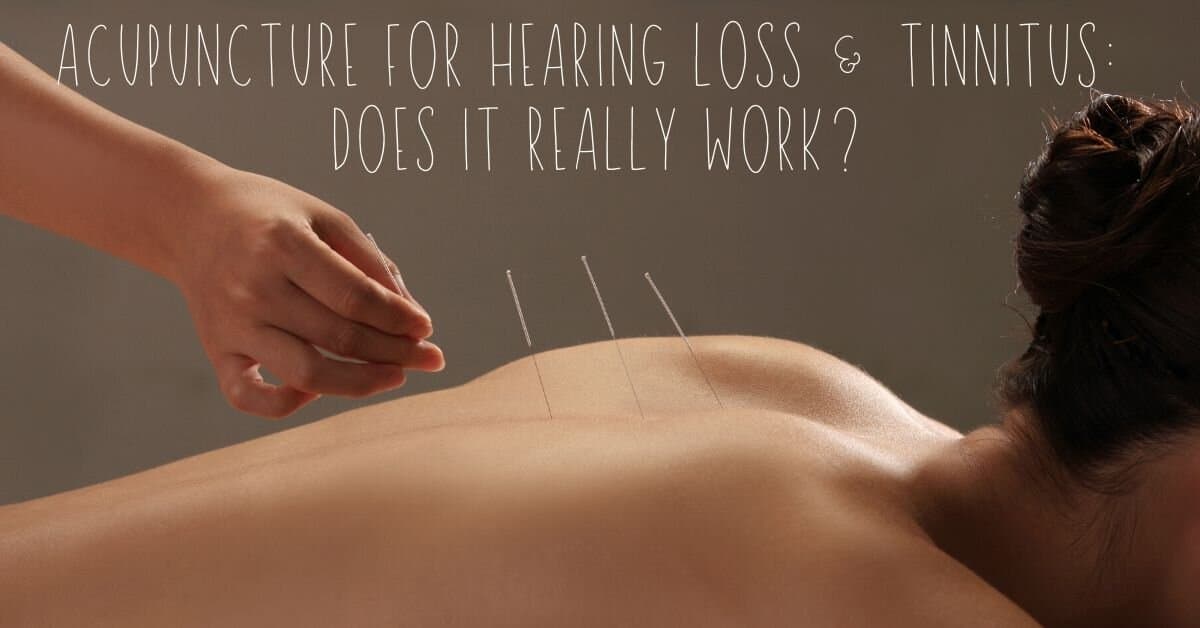Acupuncture is a practice which originated in Traditional Chinese Medicine (TCM). It involves the use of very narrow needles, possibly in combination with heat or electrical impulses, to stimulate different parts of the body whose energy flow is suspected to be blocked. While the success of acupuncture has not been conclusively verified, results are impressive to the point that many traditionally Western hospitals in the United States are providing “electric needle therapy” to some patients. With increasing awareness and mounting evidence that many chronic afflictions are the result of untenable psychological states, some patients with hearing loss or tinnitus may wish to pursue acupuncture as a treatment.
Types of Hearing Loss: Can Acupuncture Help?
It’s important to note that not all hearing loss is the same. Hearing loss breaks down into two broad categories: conductive and sensorineural. The former is caused by obstructions or anomalies in the parts of the ear that transfer mechanical energy to the cochlea, while the latter is caused by malfunctions in the cilia (tiny hair-like cells) which transduce (convert) that mechanical energy into electrical energy, or in the nerves that transport the electrical energy to the brain.
If you have hearing loss as a result of a wax buildup in your ear canal, or broken or dislocated ossicles (the three tiny bones in the middle ear), acupuncture will not address those problems. You might as well acupuncture your car’s radiator the next time it leaks. However, if your hearing loss is diagnosed as sensorineural, acupuncture may help. We have some understanding of the connection between the inner ear and the brain, but there is room in the knowledge corpus for expansion. Acupuncture is reported to help in some cases.
Sudden Hearing Loss and Acupuncture
Chinese medical practitioners have reported a high rate of success (63%) in treating sudden hearing loss with acupuncture. Again, sudden hearing loss can have a variety of causes. The strange thing about sudden hearing loss is that it is idiopathic (has an unknown cause) in all but 10-15% of cases. Usually occurring in adults in their 40s or 50s, it comes on very suddenly, usually in just one ear, and causes near-total or total deafness in that ear.
If you experience sudden hearing loss, you should see a doctor immediately. In some cases a cause will be determined quickly and prompt treatment can save your hearing in that ear. If hearing loss persists after a visit to your doctor and a cause cannot be determined, acupuncture might be a good option.
Acupuncture and Tinnitus
A British medical organization determined that acupuncture had no direct effect on tinnitus. However, tinnitus often has its roots in stress, and acupuncture can treat stress. And contrary to the study, many patients report their tinnitus being significantly alleviated by an acupuncture treatment. Among acupuncturists themselves, the self-reported success rate for treating tinnitus seems to be 40-50%.
Should I Really Try It?
Acupuncture is meant to help the body see its way clear to healing itself. It is not a good treatment in emergencies. If you notice a change in your hearing, the first step is to see a doctor. Your physician can tell you whether it is safe for you to undergo acupuncture in your current state of health. In most cases, it will do no harm, and it just might help.
Immediately following a session of acupuncture, patients might feel dizzy and/or nauseous. They may feel pain or tenderness around the treated area. These conditions are temporary.
Acupuncture can, in some cases, induce labor, so should be avoided as a treatment for hearing loss or tinnitus by pregnant women. Patients with pacemakers should not receive acupuncture that involves electrical stimulation. Additionally, those who take blood thinners or have a bleeding disorder should never undergo acupuncture.
Be aware that there is a difference between a licensed acupuncturist and a certified acupuncturist. Certification requires a few hundred hours of training but no actual practice. Licensing, on the other hand, requires thousands of hours of training and supervised treatment to attain. Be sure to visit a licensed acupuncturist. You can ask your physician for a referral, or search the National Certification Commission for Acupuncture and Oriental Medicine (NCCAOM) registry for a licensed acupuncturist.

